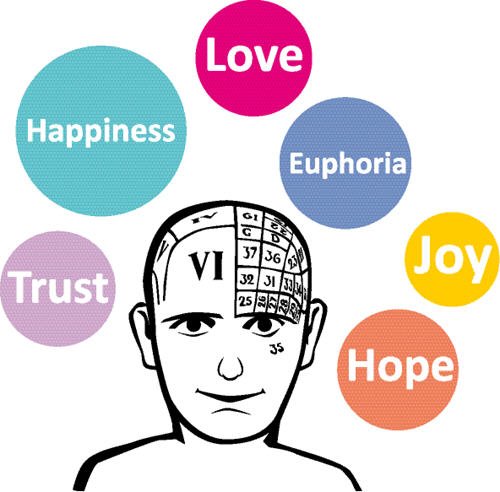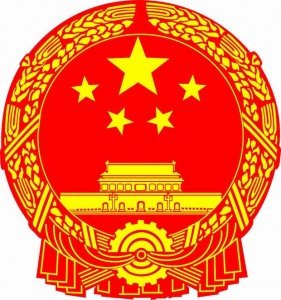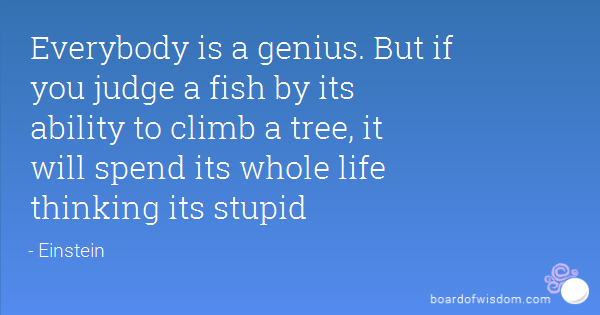The difference of Eastern and Western conception of intelligence
The difference of Eastern and Western conception of intelligence

Image Source
The Confucian viewpoint accentuates the normal for kindness and of making the wisest decision. As in the Western idea, the wise individual spends much exertion in learning, appreciates learning, and holds on in long lasting learning with a lot of eagerness. The Taoist tradition, conversely, underlines the significance of humility, opportunity from regular benchmarks of judgment, and full knowledge of oneself and additionally of outer conditions.
The distinction amongst Eastern and Western conceptions of intelligence may continue even in the present day. Yang and Sternberg considered contemporary Taiwanese Chinese conceptions of intelligence and discovered five factors fundamental these conceptions:
Factors in Chinese conceptions
- General cognitive
- Interpersonal intelligence
- Intrapersonal intelligence
- Intellectual self-assertion
- Intellectual self-effacement
Chen's 3 factors of intelligence conceptualizations
- Nonverbal reasoning ability
- Verbal reasoning ability
- Rote memory

Image Source
The distinction might be because of various subpopulations of Chinese, to contrasts in system, or to contrasts in when the studies were finished.
The factors revealed in the two studies contrast significantly from those distinguished in U.S. individuals' conceptions of intelligence by Sternberg et al..
Factors revealed by US conceptions
- Practical problem solving
- Verbal ability,
- Social competence
In spite of the fact that in the two cases individuals' verifiable speculations of intelligence appear to go far past what regular psychometric intelligence tests measure. Obviously, contrasting the Chen with the Sternberg et al. study at the same time fluctuates both language and culture. Chen and Chen fluctuated just language.
They expressly thought about the ideas of intelligence of Chinese graduates from Chinese-language versus English-language schools in Hong Kong. They found that the two gatherings thought about nonverbal reasoning abilities as the most significant aptitude for estimating intelligence.
Verbal reasoning and social abilities came next, and after that numerical aptitude. Memory was viewed as least critical. The Chinese-language gathering, be that as it may, tended to rate verbal abilities as less essential than did the English-language gathering.

Image Source
Also, in an earlier study, Chen, Braithwaite, and Huang found that Chinese students saw memory for certainties as vital for intelligence, while Australian students saw these aptitudes as being of just paltry significance.
Das, likewise looking into Eastern ideas of intelligence, has proposed that in Buddhist and Hindu philosophies, intelligence includes awakening, seeing, perceiving, understanding, and appreciating, yet additionally incorporates such things as assurance, mental exertion, and even emotions and assessments notwithstanding more intellectual components.
Contrasts between cultures in conceptions of intelligence have been perceived for quite a while. Gill and Keats noticed that Australian university students esteem academic aptitudes and the ability to adjust to new occasions as basic to intelligence, while Malay students esteem practical aptitudes, and additionally speed and innovativeness.
Dasen discovered Malay students to stress both social and cognitive qualities in their conceptions of intelligence. The contrasts amongst East and West might be because of contrasts in the sorts of aptitudes esteemed by the two sorts of cultures.
Western cultures and their schools stress what may be called technological intelligence, so things like artificial intelligence thus called smart bombs are seen, in some sense, as savvy.
Western tutoring underscores different things too, for example, generalization, or going past the data given, speed, insignificant moves to an answer, and creative thinking. Besides, quiet is deciphered as an absence of knowledge.
Interestingly, the Wolof clan in Africa sees individuals of higher social class and qualification as talking less. This distinction between the Wolof and Western ideas recommends the helpfulness of taking a gander at African thoughts of intelligence as a conceivable complexity to U.S. ideas.

Image Source
References:
https://www.researchgate.net/profile/Shih-ying_Yang/publication/232466401_Conceptions_of_Intelligence_in_Ancient_Chinese_Philosophy/links/5755894708ae10c72b66a491/Conceptions-of-Intelligence-in-Ancient-Chinese-Philosophy.pdf
https://www.cliffsnotes.com/study-guides/psychology/psychology/psychology-intelligence/other-concepts-of-intelligence
you're trying to point out the tactile and cognitive reasoning of a man.. its a good article.. good job sir
Your comment has huge meaning behind it. You seem to have a lot in your head. Thanks for reading.
great stuff
great post
Taking for example the Japanese primary educational system. They focus on building character. Students clean their own classroms, halls, rest rooms. In the cafeteria, they collect their own dirty dishes and washes. These are just kids. :)
During my childhood days, we also do these a lot in our schools. We clean the classrooms, the surroundings, we even planted flowers and vegetables in the garden. In short, we are doing things that is of great importance in our daily living. Today, we could not see children doing these things, because parents had become so protective with their children. They don't want that their children will get sweat of doing things.
You mean children these days don't clean the classroom on their own anymore? Wow, I wonder when that started.
Very interesting post. It's always fascinated me how different the west and east are. Varying not only in social constructs but apparently with perceptions of intelligence.
It's seems to me western culture is fixated on the industriousness of an individual. How much they can produce. Whereas possibly eatern philosphies center around social integration. Playing the role in society and being part of the larger whole, trying to find Harmony in a society.
The idea of an IQ test has always made me laugh. We believe in somebody's intelligence by a mere score.
Interesting stuff and good food for thought. Thanks for the post!
They more on the knowledge that will a person more intelligent, while the eastern is more concern about the inner personality.
Since it is very interesting to see the different aspects of culture, I am very interested in this article and I am actually thinking in studying this side of the psychology. It so interesting that different nations can be so different because of the way they got raised, it is fascinating! Hope to see more of your articles soon!
Love,
Sha
Thanks for reading. We may have different culture but that differences united us in many different ways.
Humans are capable of so much. I think that there are many different forms of intelligence. So people has a natural gift for creativity, others are more logical. Fascinating to think that even geographical location might also have an impact.....
That's the mystery behind human knowledge. Studies had been around for a while about the reality of human beings and how they we act and acquire knowledge, but still those are just theories covered with principles.
If only scientists could uncover exactly how intelligence is created, imagine having a way to genetically increase humans' intelligence....wow.... makes me think about that Hollywood film called "Lucy" with the blue drug that makes one super intelligent....
Yeah, that movie is so interesting. We don't know if its a possibility or not. I would prefer not because humanity will certainly forget who he is.
culture really plays a significant role in defining the meaning of intelligence.. Like here in the Philippines, a person that cannot speak English well is sometimes look down (colonialism). Ang di marunong magsalita ng Ingles ay bobo ika nga ng nakararami kaya try hard mag Ingles kahit nagkamali mali na..But, one thing is always true we are all intelligent in our own ways :)
Korek ka dyan @paulthebeloved
Nindot kol . yes we have different intellect. Knowledge alone is useless unless we have wisdom.. Wisdom is the fulfillment of our knowledge.
But it still depend on how we utilize such wisdom. Putting it on application is a huge question that will be ethically answered base on the moral principle of the person.
Hehe mao jud kol...
Nice to know, good stuff.
Wow. Insightful.